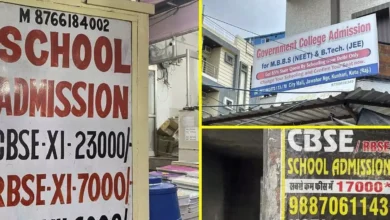1 in 2 Graduates Unfit For Job: Unemployability Despite Opportunity; How Is The Skills Gap Damaging Different Sectors?

Recent Economic Survey Founds Skill Gap Crisis among Indian Youth; 1 in 2 Indian Graduates Unfit for Employment.
65 % of India’s rapidly rising population is under 35, and many lack the skills required by a modern economy. According to the Economic Survey 2024, around 51.25 % of young people are considered employable. In other words, nearly 1 in every 2 people who graduate from college lack enough employability skills and competency to get employment. However, it should be noted that the proportion has increased from roughly 34% to 51.3% during the previous decade.
Also, another report from May 2024 from the International Labour Organisation depicts that the more educated the Indian youth is, the more chances they have of remaining unemployed. This contradicts the adage applauding ‘pursuing education and obtaining a solid degree is the only sure-shot way to secure a lucrative job and financial stability’! So, what does this kind of news signify?
No doubt India has a problem with unemployment, however, a parallel problem of similar danger hovers in the Indian economy in the face of employability. Youths in India are not skilled enough to hired for a suitable role.
How are different sectors affected by these employability issues?
Automotive Sector.
According to a survey by the Society of Indian Automobile Manufacturers (SIAM), just 57.44% of B.E. and B.Tech. grads in India are employable in the automobile sector, signalling a need to advise curriculum improvements in colleges. The number is even less for EV and digital. The report SIAM EV Talent Landscape in India also mentions that there is a 38 % collective shortfall of faculty in top Engineering institutes as high-quality EV educators prefer working in the industry than in Education. Indian automotive industry will need up to 2 lakh skilled people by 2030 to meet the government’s vision of 30 per cent electric vehicle adoption, as per the report.

ICE vehicles have been on Indian roads for a very long time, and it is not very difficult to find a mechanic if your petrol/diesel vehicle encounters any problem. However, EV vehicles are made up of different mechanisms, and if your EV encounters any problem, finding a suitable mechanic can be traumatic.
So fulfilling the EV goal of 30@ 30 may emerge as a far long dream if the conditions of EV education do not enhance and the upcoming students are trained to work on future automobiles, as according to the report, 43% of the technical capabilities between Internal Combustion Engine (ICE) and Electric Vehicle (EV) have low overlap, necessitating new talent development. On the other hand, 27% of technical capabilities have a substantial overlap between ICE and EV and may necessitate re-skilling for existing staff.
Also, the report says that it will take around 127 million learning hours to train new talent and re-skill existing personnel in the automotive business. India has to raise its yearly addition of EV-ready personnel from 15,000 to 30,000 in order to achieve 100% EV component localisation by 2030.
Manufacturing Sector.
The diverse L&T Group asserted last month that it was experiencing an employee shortfall of over 45,000 workers and engineers across its companies. According to Chairman S N Subrahmanyan, the flagship engineering, procurement, and construction sector is experiencing a labour shortfall of 25,000-30,000 workers, while the information technology and IT-enabled services industry is suffering a scarcity of 20,000 engineers. Furthermore, this is not the first time a company has gone public about its staffing issues.
Even last year, Subrahmanyan stated that it is having issues despite plans to add over 30,000 workers. Subrahmanyan attributed the manpower scarcity to factors such as demand for certain skill sets that may be in short supply, a drive from clients to complete projects faster, and events like as elections and weather patterns.
Financial Service Sector.
Who today doesn’t believe that ‘Money is Time; Money is Wealth; Money is Peace’. However, tackling money is not everyone’s cup of Tea! For ages, Indian Education has been extensively focused on Science-related subjects, which is required. However, ignoring other domains is also not a good sign.
According to a top official of the FPSB India (Financial Planning Standards Board), India is also experiencing unemployability in the financial services industry, as roughly 18 lakh posts went unfilled last year. Last year, according to data from the government’s National Career Services portal, India added 46.86 lakh jobs in financial services. Only 27.5 lakh positions were filled. This is due to unemployability. There are jobs available, but individuals are not capable of taking them up.
Have you noticed that banks and mutual fund houses have hiring schedules round the year? Banks, insurance businesses, broking firms, and mutual fund companies are always in need of qualified employees. If an online job search is conducted, it can be found that there are about 40 times as many jobs as the number of Certified Financial Planner (CFP) professionals available. Currently, India has 2,731 CFP professionals, compared to 2.23 lakh worldwide. By 2030, India will have around 10,000 CFPs, compared to the required 1,00,000 because of high demand.

This demand supply gap can be bridged when people of sound financial knowledge takes up the job responsibilities. An optimal financial market ecosystem is needed which can nurture skilled professionals and make them competent enough to handle the comprehensive nature of banking and money operations.
Banking Industry.
The banking skills and talent pyramid is skewed as a result of ongoing developments and the use of technology in daily processes. The most major change in banking today is a clear shift in focus away from money operations and management and towards new business and wealth creation for new and current clients. Today, new business development and ongoing customer relationship management are critical components of the organisation. From creating new accounts to increasing business and wealth across managed portfolios.
This highlights the first challenge, a skewed skills pyramid. Banks employ nearly 100,000 people, although the majority of them work in operational and back-office functions. Banks now have customer-centric responsibilities and sales-oriented supervisors in order to fulfil commercial objectives. The need of the hour is to hire for expertise and abilities that will help businesses and managers manage HNI/UHNI portfolios and maximise returns. However, acquiring new clients cannot be achieved by compromising strict regulations. Just to fulfil the target, one cannot surpass the laws.
Recall the case of the ‘BOB World’ scam, where in a race to hit the crazy targets to move existing BoB customers to ‘BoB World’, the bank employees started bending the rules and found an easy way out to deal with the customers. Therefore, the graduates getting out of college need not only be competent enough but also both dynamic and accountable to render their services and get decent employment in the banking industry.

Aviation Sector.
The aviation industry provides several extremely desirable occupations. Though there has been some market instability, the industry remains a popular choice among employment searchers. Dhriti Prasanna Mahanta, Vice President & Business Head of TeamLease Degree Apprenticeship, stated in an interview with a news outlet that the aviation industry is expanding and there is a need for talent. However, the aviation industry now has a 17% skill gap, which is expected to increase to 25% by the end of the fiscal year.
This scarcity immediately affects critical positions such as pilots, air traffic controllers, engineers, and maintenance personnel. The technical area is especially hard hit, with skill shortages ranging from 32% to 43% across various specialities, including service engineering, AI, and blockchain. Similarly, non-technical roles also show significant shortages, ranging from 38% to 41%, demonstrating the scope of the skills deficit in all aspects of aviation.
According to recent industry forecasts, India’s aviation sector development might provide around 72,900 new employment for technicians and aircraft maintenance engineers (AMEs) by 2035. Pilots, aircraft mechanics, service technicians, avionic technicians, safety and compliance managers, engineers, quality managers, airworthiness engineers, operations controllers, and ground personnel are among the essential professions expected to be in high demand. Improving the capacity of training institutes and aviation academies to handle these difficulties holistically is critical. This involves improving infrastructure, expanding resources, and updating courses to better correspond with changing industrial demands.
Apart from core technical or domain specific skills like technology or finance, today’s young graduates lack even the basic skills that could land them in a decent job. No doubt, domain specific skills are always needed, however, they can also be learned during the training period when one enters the job. But if the candidate do not know the basic skills, like literacy, soft skills, etc. then having them on board could be quite difficult.
So, what basic skills is today’s youth lacking?
Literacy skills.
Nowadays, college is just for meeting friends and completing degrees. Students just mug up their syllabus before the exams and vomit them on the answer sheets, get enough marks, and reward themselves with self-assurance that they are competent enough. Moreover, the rote learning of notes from seniors and guides even worsens the situation, making students avoid the concept of reading and making self-notes. Hence, whatever in the syllabus is just in their minds, they cannot encounter real life problems that take place in the dynamic office situations after their college degrees, making them unfit for the job.
Apart from them, students of today are expert in handling Insta profiles, however, if you ask them to make a presentation on Powerpoint or ask them to edit an excel or google sheet, they will be traumatised like anything. Basic MS office skills, that are still an important aspect of smooth functioning and coordinations between departments and projects, is kept unattended by the graduates.
Soft skills.
Many new graduates who enter into the working sector with a bang update on their LinkedIn and Instagram profiles leave their jobs and shift to other banks within just a few months of service. There is no problem with the job shift, but doing so without improving the skills and learnings from the previous role will not give any output. Take the example of the banking industry.
A candidate, when unable to fulfil CASA targets, just keeps switching banks regularly to get the mental peace from their job. However, they hardly try to understand that they lack the soft skills of customer interaction that will eventually help them in customer acquisition. Hence, After a certain time, they eventually fall into the category of lack of employability for doing the job.

What can be done?
For ages, there existed some selective careers like Engineering, Medicine, CA, etc., that used to rule the minds of the parents and, hence, their kids. Slowly, careers in law became more popular in Indian families. Thankfully, the New Education Policy (NEP) recommended some significant modifications to the higher-education curriculum, which are now beginning to take effect. Moreover, the announcements of internships in recent budges can pay the hope of increasing employability among the youth.
Making a graduate worthy while entering into the job sector is not only the responsibility of one single unit. Both parents and educational institutions need to work together to make a progressive step towards the betterment of society and make the upcoming generations qualitative of taking jobs.




